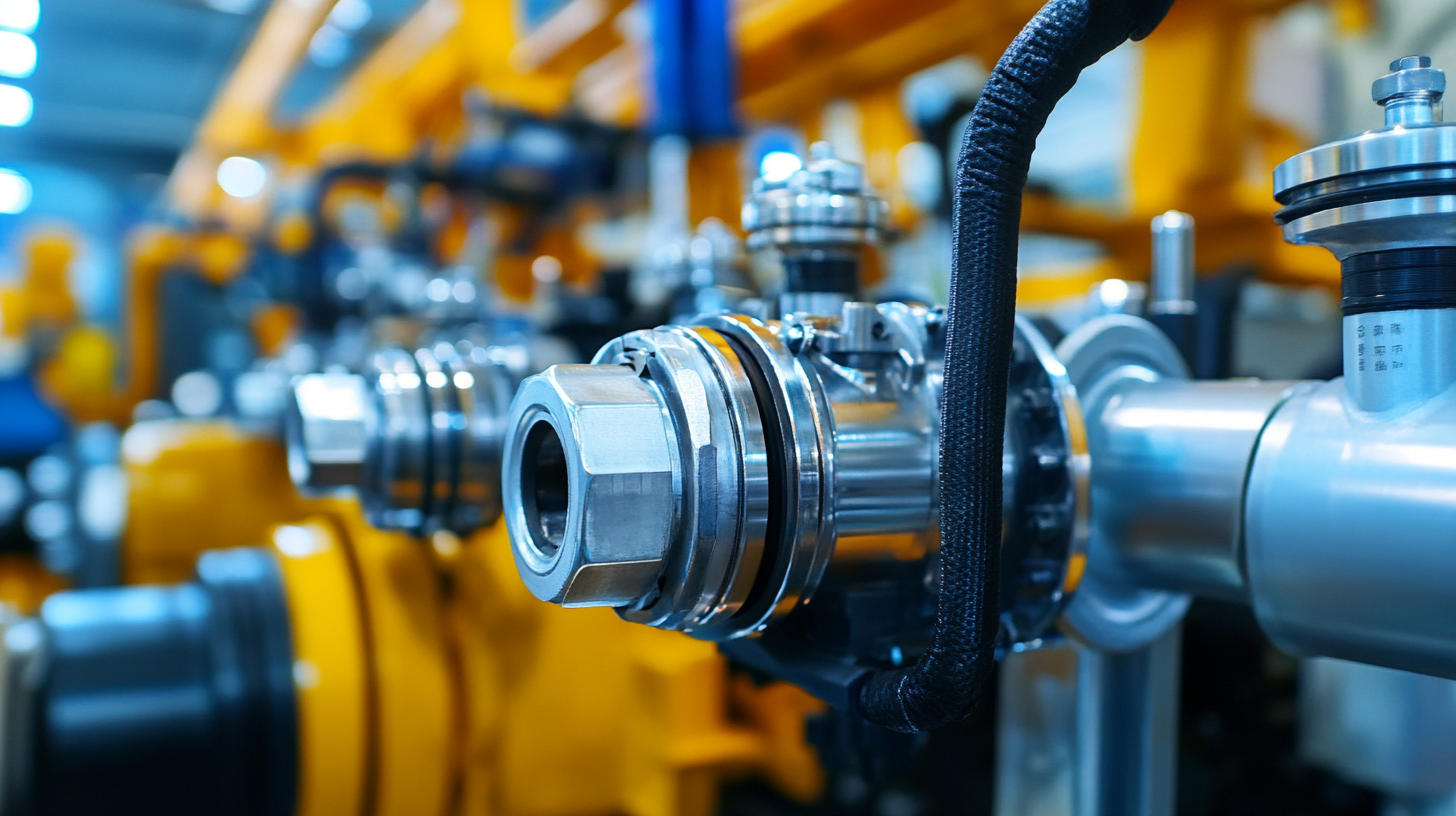Challenges Facing Truck Hydraulic Pump Performance and Reliability
In the trucking industry, the reliability and performance of critical components play a pivotal role in overall vehicle functionality. Among these components, the Truck Hydraulic Pump stands out as a crucial element that directly impacts the efficacy of hydraulic systems. As trucks are put to the test under varying loads and harsh conditions, the demand for consistent pump performance becomes even more pressing. However, operators often encounter several challenges that can hinder the efficiency and reliability of these hydraulic pumps, leading to increased downtime and maintenance costs.
Understanding the factors that affect Truck Hydraulic Pump performance is essential for fleet managers and maintenance teams alike. Issues such as wear and tear, inadequate lubrication, and varying operating temperatures all contribute to diminished functionality. Additionally, the complexities involved in the integration of hydraulic systems in increasingly advanced truck models further complicate the pursuit of reliability. This blog will explore these challenges in depth, providing insights and strategies for optimizing Truck Hydraulic Pump performance, thereby enhancing overall operational efficiency in the trucking sector.

Overview of Hydraulic Pump Functionality in Truck Systems
Hydraulic pumps play a crucial role in the operation of truck systems, facilitating everything from steering to lifting heavy loads. At their core, hydraulic pumps convert mechanical energy into hydraulic energy, generating the pressure needed to perform these essential functions. When a driver turns the steering wheel or activates a liftgate, the hydraulic pump ensures that the necessary fluid is delivered to the corresponding actuator, enabling seamless operation. This efficiency is vital in commercial trucks, where downtime can lead to significant financial losses.
However, maintaining optimal performance and reliability of hydraulic pumps comes with its own set of challenges. Environmental factors like temperature fluctuations and exposure to dirt and debris can adversely affect pump functionality. Additionally, issues such as cavitation, aeration, and improper fluid selection can lead to reduced efficiency and increased wear. Consequently, regular maintenance and careful monitoring of hydraulic systems become imperative to ensure that pumps deliver the high performance required in demanding truck operations. Addressing these challenges not only enhances reliability but also prolongs the lifespan of the hydraulic components, ensuring that trucks can deliver on their promises day in and day out.

Key Factors Affecting Hydraulic Pump Performance and Efficiency
Hydraulic pumps play a crucial role in the performance and efficiency of truck systems, yet several key factors can significantly influence their operation. One of the primary aspects affecting hydraulic pump performance is fluid viscosity. The right fluid viscosity ensures that the pump can create optimal pressure and flow rates. If the fluid is too thick, it can lead to increased wear and energy loss. Conversely, if it is too thin, it may not provide sufficient lubrication, ultimately resulting in a compromised system.
Another critical factor is temperature management. Hydraulic fluids can become less effective at extreme temperatures, causing degradation and reduced performance. Regular monitoring of hydraulic fluid temperature and employing cooling systems where necessary can help maintain the desired viscosity, enhancing pump reliability. Furthermore, the quality of the hydraulic fluid itself cannot be overlooked; contaminants and degradation can impair pump efficiency, making it vital to use high-quality fluids and perform regular maintenance.
In addition to these factors, the design and quality of the hydraulic pump itself influence performance. Pumps that are engineered with precision and built from durable materials are less likely to experience failures. Regular assessments and adherence to maintenance schedules can prevent unexpected downtimes and enhance the overall efficiency of truck operations. By focusing on these elements, operators can effectively maximize the performance and reliability of hydraulic pumps in their trucks.

Common Causes of Hydraulic Pump Failures in Trucks
Hydraulic pumps play a crucial role in the reliable operation of trucks, but various challenges can lead to significant performance issues. Common causes of hydraulic pump failures often stem from contamination, inadequate maintenance, and manufacturing defects. Contamination can occur from dirt, water, or foreign particles entering the hydraulic system, leading to premature wear and potential pump failure. Regular maintenance and oil changes are essential to prevent such issues, yet many operators overlook these tasks, which can exacerbate wear and tear on hydraulic components.
Recent news highlights the relevance of these failures in the broader context of truck reliability. For instance, Ford's recall of 300,000 trucks due to a dangerous fuel pump defect sheds light on how even minor issues in pump performance can escalate into significant safety concerns. Similarly, Toyota has recalled over 100,000 Tacoma trucks for rear brake hose problems, which, while not hydraulic pump failures per se, underscore the importance of all pump-related systems in vehicle performance.
Understanding the common causes of hydraulic pump failures is essential for truck operators. By proactively addressing issues like contamination and maintenance, truck owners can enhance the reliability of their hydraulic systems. This is particularly vital in an industry where performance impacts not only productivity but also safety on the road. The ongoing recalls serve as a reminder that attention to hydraulic systems is critical for the overall health of trucks, and neglecting these components can lead to costly and dangerous consequences.

Best Practices for Maintaining Hydraulic Pump Reliability
Maintaining the reliability of hydraulic pumps in the trucking industry is crucial for ensuring optimal performance and reducing downtime. According to a recent study by the National Fluid Power Association, approximately 70% of hydraulic pump failures are attributed to poor maintenance practices. To combat this issue, implementing best practices can significantly enhance the longevity and efficiency of hydraulic systems.
One fundamental practice is regular fluid analysis. An estimated 60% of hydraulic failures can be traced back to contaminated fluids. By routinely testing hydraulic fluids for particulates and chemical properties, operators can identify issues before they lead to pump failure. The use of advanced filtration systems is also essential, as they can remove contaminants and help maintain the integrity of the hydraulic circuit, ultimately extending pump life.
Moreover, focusing on proper operating conditions cannot be overlooked. Research shows that operating hydraulic pumps outside their designed parameters can reduce their lifespan by up to 50%. Scheduling routine maintenance checks, where alignment, pressure settings, and fluid levels are assessed, ensures that equipment is functioning within optimal parameters. Additionally, keeping up with manufacturer guidelines and recommended maintenance schedules is integral to preventing premature wear and tear.
By embracing these best practices, trucking companies can enhance the reliability of their hydraulic pumps. This proactive approach not only minimizes costly shutdowns but also contributes to overall fleet efficiency, reinforcing the importance of regular maintenance in the hydraulic power sector.
Emerging Technologies to Enhance Truck Hydraulic Pump Performance
Emerging technologies are transforming the landscape of truck hydraulic pump performance and reliability, addressing various challenges that have historically hindered operational efficiency. One of the most significant advancements comes from the integration of smart sensors into hydraulic systems. These sensors enable real-time monitoring of fluid levels, temperature, and pressure, allowing for immediate adjustments and reducing the risk of failure. By harnessing data analytics, truck operators can predict maintenance needs, thus minimizing downtime and enhancing overall reliability.
Another promising technology is the development of advanced materials designed to withstand higher pressures and temperatures. Innovations such as composite materials and improved sealants not only extend the lifespan of hydraulic pumps but also enhance their performance in demanding environments. These materials reduce friction and wear, leading to smoother operation and increased efficiency. As manufacturers adopt these advancements, the performance of truck hydraulic pumps is set to significantly improve, providing a competitive edge in the logistics and transportation sector.
Additionally, the rise of electric and hybrid hydraulic systems presents an opportunity to revolutionize truck hydraulic mechanics. By utilizing electric actuators in place of traditional hydraulic pumps, these new systems offer increased precision and response times with lower power consumption. This shift not only boosts performance but also aligns with the growing push for sustainability in the transportation industry. Embracing these emerging technologies will be crucial for the future of truck hydraulic systems, offering solutions that meet the evolving demands of efficiency and reliability.





